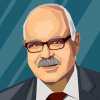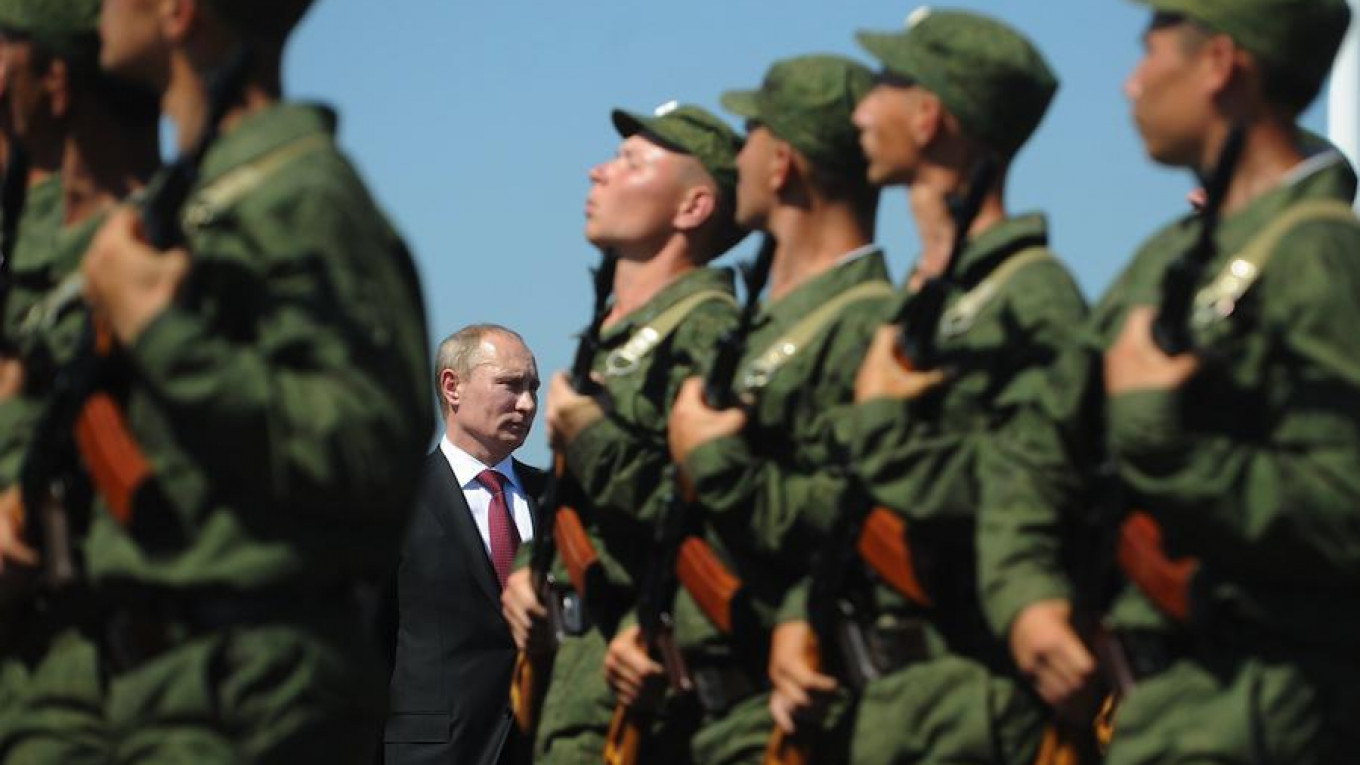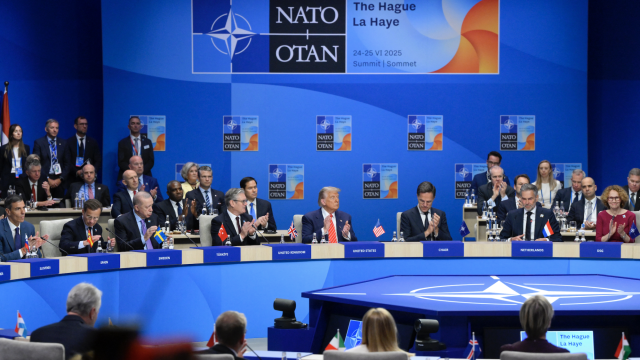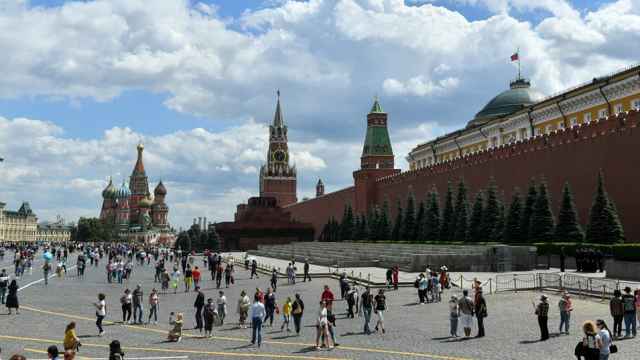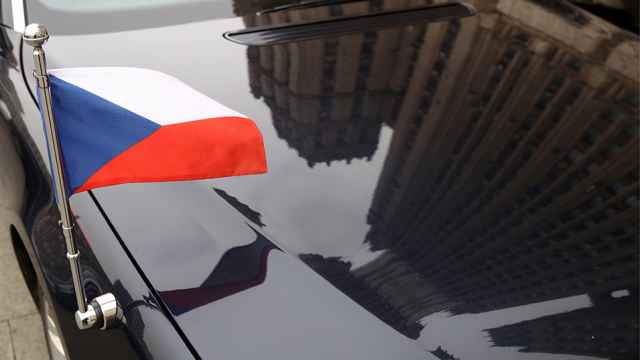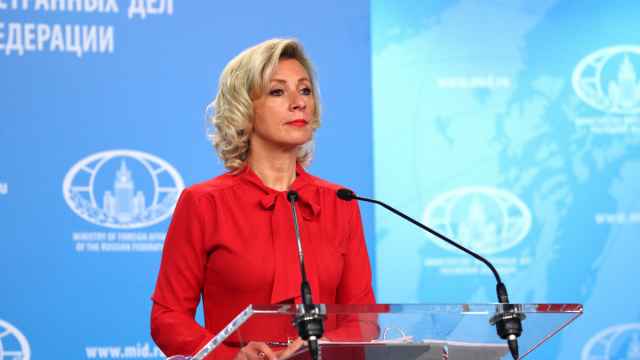Russia’s foreign policy has come full circle in the last 25 years. It started with the rejection of the Soviet Union’s superpower posture, its global geopolitical ambitions, and its ideology.
The Russian Federation positioned itself as a “new Russia” — no longer a superpower, with modest ambitions beyond its borders, and willing to go along with the Soviet Union’s former adversaries who became Moscow’s new friends and mentors.
It was not immediately clear what this new Russia’s national interests were – and whether or how they differed from those of its American and European friends.
But armed conflicts on the outskirts of the former USSR, the wars in the Balkans and NATO’s enlargement to the east, taught Russia’s elites and public some pretty hard lessons about the country’s post-Soviet role.
NATO enlargement, the Kosovo crisis and the war in Chechnya marked the end of the early benign attitude toward the West, and above all the United States. It dawned on the Kremlin that, in the final count, Russia could only rely on nuclear weapons to protect its vital security interests.
The financial default after the collapse of the Soviet Union demonstrated that Russia’s economic dependence on the West made it a much-diminished actor on the global scene, while giving foreigners every opportunity to meddle in Russian politics and economics.
Russia made two more attempts to “dock” with the West. After 9/11, it pledged support to the United States and sought an alliance with NATO, based on counter-terrorism, even as it proclaimed its “European vocation” and a desire to integrate with the European Union.
Toward the end of the decade, it proposed a “common defense perimeter” with the U.S. and its allies, built around joint missile defenses, and worked with the EU on modernization partnerships.
These attempts have failed, essentially over Moscow’s unwillingness to buy the “admission fee” for joining the Western club: accepting U.S. leadership.
Relations became progressively more strained. Georgia was a warning shot. Ukraine marked a final break with past unrealistic assumptions and dispelled unfulfilled ambitions. Western integration on terms acceptable to Russia, until now a central pillar of Russia’s post-Soviet foreign policy, came crushing down.
Ironically, the alternative to that course, re-integration of former Soviet borderlands around Russia did not survive the Ukraine crisis either. Just as Moscow could not accept U.S. tutelage, neither could its ex-Soviet partners give up their sovereignty to an entity dominated by Russia.
Suddenly, the Russian Federation saw both its Plan A and Plan B foreign policies collapse simultaneously. And there was no Plan C.
It appears however that the new grand design is slowly emerging. Russia is alone, but it is free to move. Its geographical position in the north and center of the great continent of Eurasia both allows and compels it to have a 360 degrees vision of its gigantic neighborhood, from Norway to North Korea, and from Murmansk to Mumbai.
It has the two powerhouses of the continent, the EU and China, as direct neighbors, and it does not have to choose between them.
Moscow’s new grand strategy is still in gestation. It seeks to maximize connectivity with all, while putting Russia’s own interests first. Managing a large number of very different partners is difficult, but not impossible, as Moscow’s recent experience in the Middle East shows.
Keeping relations with China on an even keel will be a major long-term task. Creating a new regional order with China, India, Iran, Turkey and others will not be easy either. However, the European Union and Ukraine are also part of Grand Eurasia, and the mission will not be accomplished before Europe and Russia reach a new normal based on empathy in diversity.
Dmitry Trenin is director of The Carnegie Moscow Center. The views and opinions expressed in opinion pieces do not necessarily reflect the position of The Moscow Times.
A Message from The Moscow Times:
Dear readers,
We are facing unprecedented challenges. Russia's Prosecutor General's Office has designated The Moscow Times as an "undesirable" organization, criminalizing our work and putting our staff at risk of prosecution. This follows our earlier unjust labeling as a "foreign agent."
These actions are direct attempts to silence independent journalism in Russia. The authorities claim our work "discredits the decisions of the Russian leadership." We see things differently: we strive to provide accurate, unbiased reporting on Russia.
We, the journalists of The Moscow Times, refuse to be silenced. But to continue our work, we need your help.
Your support, no matter how small, makes a world of difference. If you can, please support us monthly starting from just $2. It's quick to set up, and every contribution makes a significant impact.
By supporting The Moscow Times, you're defending open, independent journalism in the face of repression. Thank you for standing with us.
Remind me later.

